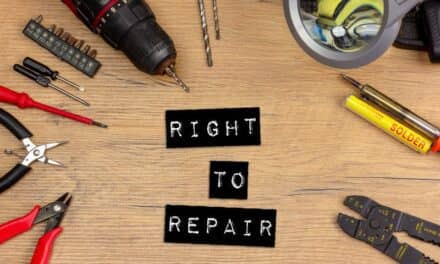By Keri Forsythe-Stephens
When COVID-19 first hit, I (like most people) assumed that it would resolve quickly. Quarantining and “social distancing” seemed almost like a fun social experiment—and one my children would, hopefully, look back on fondly. Now, several months into the pandemic, the novelty has certainly worn off. “Will this ever end?” I’ve asked my friends and family on more than one occasion, mostly rhetorically.
The struggle is real—and I’m not even in the healthcare field, dealing with the reality of COVID-19 firsthand. I can’t image the pandemic fatigue you, my dear readers, must be feeling. Another battle that continues to rage, with seemingly no end in sight? The fight over access to vendor service manuals. In May, the battle reached epic proportions as IFixit came on the scene, launching a free medical device service database for the HTM community. (Click here for an exclusive, in-depth look at IFixit.)

While many praised IFixit for making strides in the right to repair, others, particularly the Medical Imaging & Technology Alliance (MITA), expressed their concerns. In a letter sent to the FDA in late June, MITA claimed IFixit “inappropriately posted proprietary service manuals for use by unregulated medical device service providers.”
“Uncontrolled release of these materials to unregulated entities that are not required to have appropriate processes or safety controls in place raises the risk of improper servicing of medical devices,” MITA Executive Director Patrick Hope wrote in the letter. “These actions raise the question as to why unregulated third parties continue to deny any responsibility for adopting appropriate quality and safety controls.”
Gay Gordon-Byrne, executive director of The Repair Association, begs to differ. In a statement written exclusively for 24×7 Magazine (Read it in full here), Gordon-Byrne shared why she believes MITA’s argument is “categorically false.”
“More information in the hands of highly trained and qualified people who need such information to keep essential equipment available only improves access to patient care,” she said. “And either that is true or the timely availability of diagnostic medical imaging equipment doesn’t affect patient outcomes. Both cannot be true at the same time.”
Gordon-Byrne also addressed MITA members specifically, stating that they could “use [technology like IFixit] to help improve access to their current and archived imaging equipment service manuals.” After all, she said, “if patient safety, care, and better outcomes are the priority, then I believe it’s nonsensical to withhold repair and PM manuals from those who need them.”
Where do you fall in the (seemingly never-ending) battle over service manuals? E-mail me at [email protected] and let me know.
Keri Forsythe-Stephens is chief editor of 24×7 Magazine.





